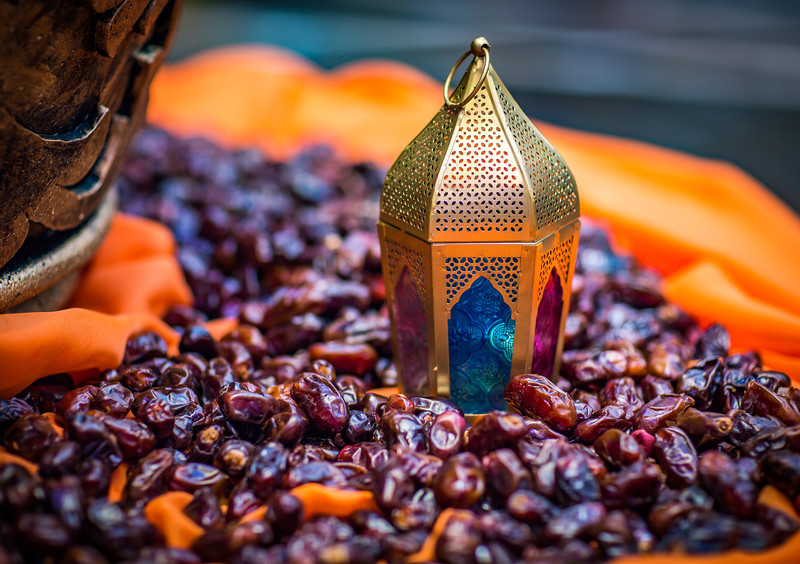The holy month of Ramadan is observed by at least a billion Muslims across the world every year. How much do you know about it besides the fact that it’s a month of fasting? Here are at least 10 things you should know about Ramadan:
- Ramadan is the ninth month of the Islamic calendar where Muslims worldwide observe a month of fasting. This annual observance is regarded as one of the Five Pillars of Islam.
- The fasting period during Ramadan is called sawm which literally means ‘to refrain’. If you don’t know already, Muslims do not only refrain from eating and drinking from sunrise to sunset but also smoking, engaging in sexual relations, and in some interpretations, they also refrain from using profanity as well as listening to music or watching films.
- Ramadan is a holy month because it’s the month in which the holy Quran was revealed. Thus, during the holy month, Muslims attempt to read the entire Quran.
- One of the most important nights of Ramadan is Laylat Al Qadr (The Night of Destiny or Power). The Holy Quran was first revealed to Prophet Muhammad during the holy month of Ramadan on a night known as Laylat Al Qadr. This night carries more blessings than a thousand months. Muslims spend this night in prayer and meditation; to make dua (supplication – calling upon Allah) and to seek forgiveness for past sins. There is salvation in this night; a chance to be cleansed of all sins and reborn again.
- In Ramadan, Muslims believe the gates of heaven are opened and the gates of hell are closed and the devils are chained.
- Ramadan is not just about fasting. Charity is a significant part of the holy month. Read more about it on Marhaba’s article, A Month of Fasting – And Giving. Other important practices in Ramadan include prayers such as Taraweeh, an evening prayer performed daily at the mosque during the holy month; and Qiyam Al Layl, which is also known as Tahajjud prayer, performed after midnight, but before sunrise on the last 10 days of Ramadan; dhikr (remembrance of Allah); and dua.
- In addition to fasting, Muslims attempt to read the whole Quran, which comprises 114 chapters. During the month of Ramadan, Muslims all over the world follow the example of Prophet Muhammad, staying awake and standing in long prayers, striving to get closer to Allah.
- There are many cases where Muslims are exempted from fasting in the holy month of Ramadan, either for the whole month or a short number of days. Those who are terminally or chronically ill and/or on medication or treatment are exempted from fasting Ramadan. This includes those who have cancer, diabetes and other similar illnesses. Those who fall ill during Ramadan should not fast during their days of illness. Women who are pregnant, breastfeeding or on their menstrual period are also exempted. Those travelling during Ramadan are also exempted from fasting on their days of travel. Men and women of senility and/or old age who lack the strength to fast are also exempted. And of course, Muslims stricken by poverty, already starving and thirsty are free of the obligation of fasting Ramadan. Muslims should not fast for any of the reasons above neither should they be forced to fast. If so, compulsion to fast is an exemption during Ramadan.
- However, if one does not fast during Ramadan for reasons of travel or non-chronic illnesses (like having a cold, the flu or menstrual period), he or she is obligated to make up for those days after the holy month concludes and before the commencement of the next month of Ramadan. Muslims may fast those ‘pending’ days on consecutive or individual days – as long as it’s before the next Ramadan. If one did not make up for those days prior to the next Ramadan or if one is unable to fast at all, like a person who has a chronic disease, then he or she should feed a poor person every single day during the month of Ramadan.
- Generally, Muslims begin fasting at a young age. Children are encouraged to start fasting at the age of 10. Once children hit puberty, they are obligated to fast.
For more information about Ramadan, read It’s All About Ramadan.
Author: Ola Diab
Copyright © Marhaba Information Guide. Reproduction of material from Marhaba Information Guide’s book or website without written permission is strictly prohibited. Using Marhaba Information Guide’s material without authorisation constitutes as plagiarism as well as copyright infringement.





